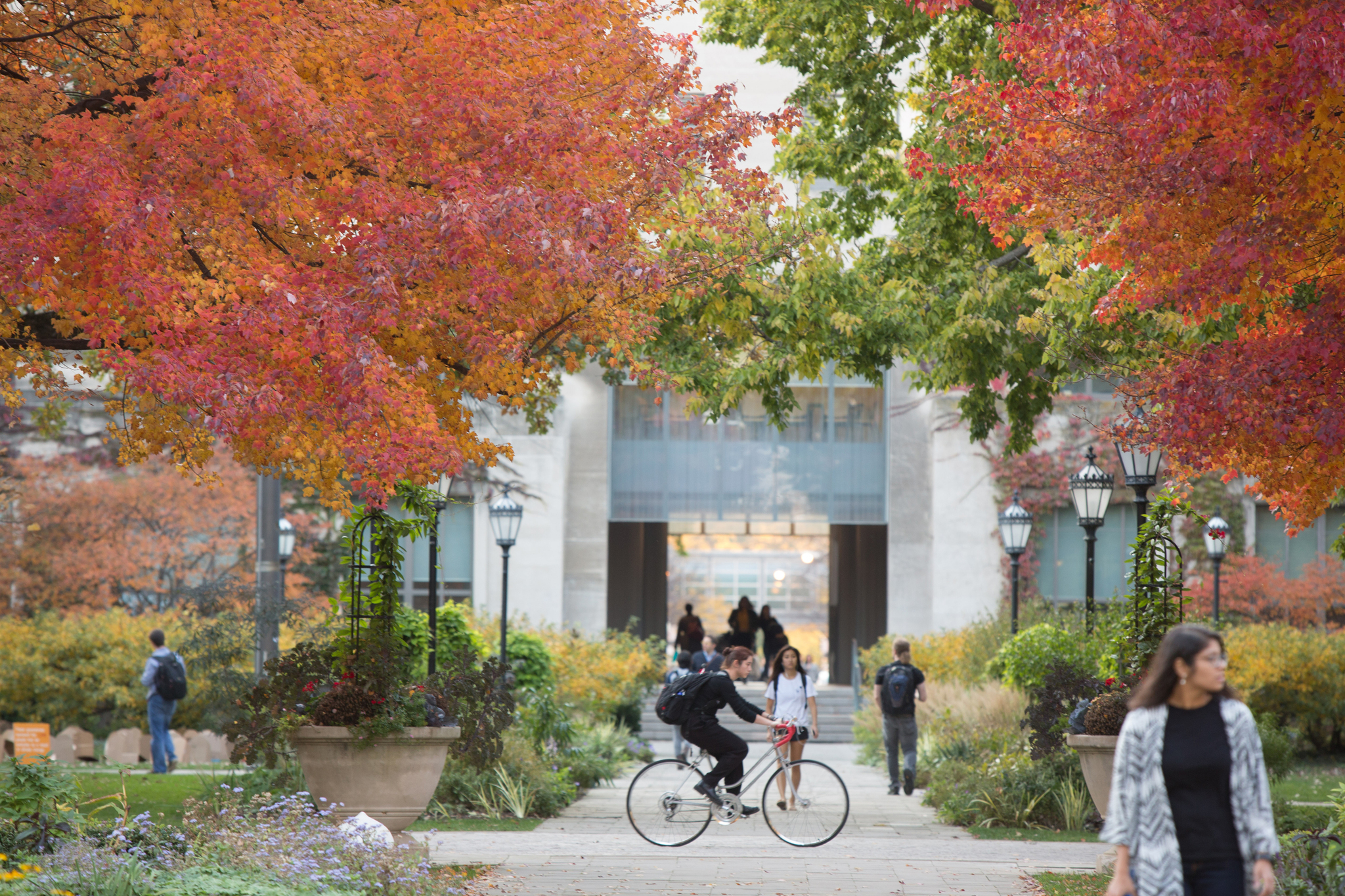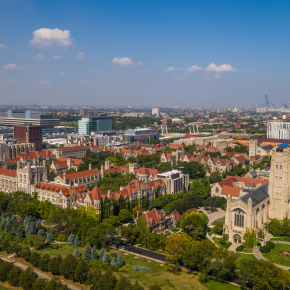
The CNRS and UChicago launch a new International Research Centre
The International Research Centre for Fundamental Scientific Discovery will promote strong strategic convergence between the CNRS and the University of Chicago in scientific fields as diverse as particle physics and the digital humanities.
The CNRS has just opened its fourth International Research Centre (IRC), this time with the University of Chicago, one of its leading partners in the United States. The agreement to create the International Research Centre for Fundamental Scientific Discovery (IRC Discovery) was signed on 30 November in Washington DC, by the CNRS Chairman and CEO Antoine Petit and UChicago President Paul Alivisatos, during the state visit of French President Emmanuel Macron.
IRCs are new cooperation structures between the CNRS and its primary international partners, complementing a collaborative toolbox that already includes international laboratories, projects between scientists from CNRS research units and foreign institutions, and networks between teams from the CNRS and organisations abroad.
“An international laboratory, which focuses on a particular research field, is managed by the CNRS but established outside of France, under the joint supervisory authority of a foreign academic partner, most often a university,” explains Christelle Roy, Director of the CNRS European Research and International Cooperation Department (DERCI). “An IRC, on the other hand, is an umbrella structure without walls that enables a more direct strategic dialogue between the CNRS and an institution of excellence from another country. It marks a transition to a larger scale, bolstering an existing relationship through projects, networks, and international laboratories, paving the way for new programmes that will be conducted jointly.”
An IRC allows resources to be pooled for researchers, academics, and their doctoral students, especially through joint doctoral thesis programmes between the two partners. Workshops, preferably in person, are held as often as needed to facilitate exchanges between the two communities. This provides opportunities to refine ongoing projects and establish new ones, with IRCs promoting a long-term vision as part of expanded partnerships.

Following the launch of first IRC, the France-Arizona Institute for Global Grand Challenges in 2021, two more IRCs were opened in 2022, with Imperial College London and with The University of Tokyo. “We have seen a wonderful scientific story unfold with the University of Arizona,” says Roy. “A winning strategy in which research teams systematically develop projects together, with two scientific committees— one coordinated by the CNRS and the other by our partner— that regularly meet to open avenues for cooperation and decide on the next steps. This methodology also applies to the other two IRCs that we inaugurated last year, but are too recent to have yielded results at this stage.”
IRC Discovery with UChicago is the fourth such structure to be opened in under two years. Although the creation of newIRCs appears to be accelerating, they are only established with the most collaborative partners, based on their strong ties with the CNRS, as well as on a number of different research topics and the quality of their academic research.
The University of Chicago is one of the best universities in the United States. In terms of co-publications, it is also among the first American partners of the CNRS, which in turn is its leading international research partner. “UChicago has top-notch facilities that include Fermilab,1 which is devoted to particle physics, and Argonne National Laboratory, focused on nuclear research,” Roy points out. “With the IRC Discovery, researchers from CNRS labs can more easily take advantage of these cutting-edge facilities.” In the field of physics, a first joint workshop was held last spring on quantum science.
Cooperation will also be bolstered in disciplines such as the human and social sciences, in which UChicago is a global leader, but also in areas as diverse as economics, astronomy, mathematics, political science, biology, physics, and chemistry, among others. “For an IRC, we do not reason in terms of research departments or topics, however powerful they may be,” Roy stresses. “We operate at the scale of the CNRS, based on institutional and strategic considerations.”
"As the CNRS is multidisciplinary by nature, we seek prestigious partners with equivalent capabilities, with whom we can work hand in hand to pursue basic research for the benefit of society, and find solutions to the societal challenges we are facing,” explains the CNRS Chairman and CEO Antoine Petit. “IRCs enable the leadership of the CNRS to communicate directly with its counterpart at the partnering institution, in order to provide responses that meet the ambitions of scientists in conducting their projects."
The need for joining forces to provide an answer to today’s issues also lies at the heart of UChicago President Alivisatos’ concerns. “Addressing the world’s greatest challenges requires deliberate international partnerships that bring together intellectual assets and infrastructure at scale. This new partnership is a great example of peer institutions committing their resources to reducing barriers to effective collaboration and accelerating solutions to global issues.”
- 1Fermi National Accelerator Laboratory.


